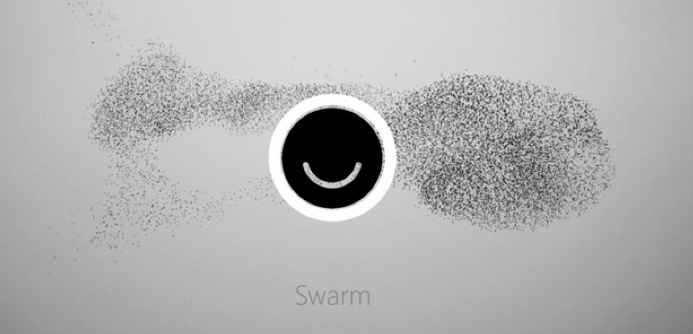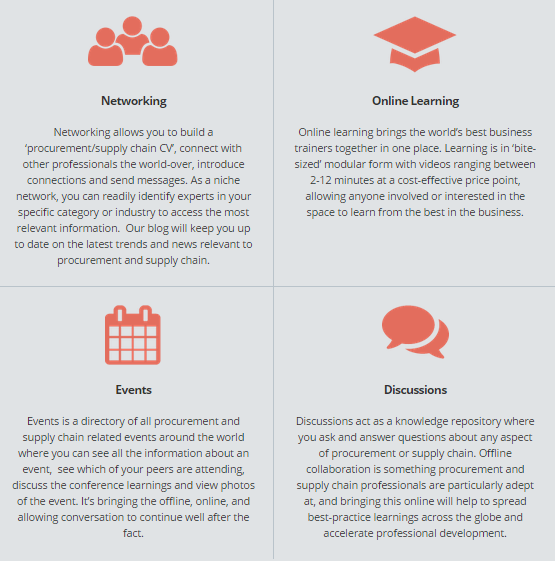
by Fronetics | Nov 11, 2014 | Blog, Current Events, Marketing, Social Media, Strategy

Ello launched in beta on August 7th. By the last week in September the invite-only social network was receiving more than 50,000 invite requests per hour.
What sets Ello apart from other social networks? Ello is ad-free and doesn’t sell user data to third parties. On October 23rd Ello became a Public Benefit Corporation; therefore, making it virtually impossible for Ello to ever sell ads or user data.
The company’s manifesto points to the frustrations which were the impetus for founding Ello, and to the company’s strategic direction:
“Your social network is owned by advertisers.
Every post you share, every friend you make, and every link you follow is tracked, recorded, and converted into data. Advertisers buy your data so they can show you more ads. You are the product that’s bought and sold.
We believe there is a better way. We believe in audacity. We believe in beauty, simplicity, and transparency. We believe that the people who make things and the people who use them should be in partnership.
We believe a social network can be a tool for empowerment. Not a tool to deceive, coerce, and manipulate — but a place to connect, create, and celebrate life.
You are not a product.”
Ello’s mindset resonates. Not only are people clamoring to join the social network, investors are pounding on the door. CEO and Co-Founder Paul Budnitz told BusinessWeek:“I have every investor in the world in my inbox. Someone today offered to fly us out in a private jet to talk, and we said we’re just too busy.” Ello is only open to additional financing from backers with similar values.
What can businesses learn from Ello’s rapid rise to stardom? No one wants to be thought of as a product. If your company recognizes this and your social media strategy reflects this – you are more likely to be successful and rise to stardom (or at the very least increase your revenue).
Your company should use social media to:
- Build trust and relationships with prospects and customers;
- Engage with customers;
- Listen;
- Learn from your customers.
As Alexandra Samuel, Vice-President of Social Media at Vision Critical, recently wrote in an article for the HBR Blog Network: “Instead of relying on algorithms and ad targeting to get dollars out of their customers’ wallets, companies need to think about the value they can offer to their customers’ online lives.”

by Fronetics | Nov 11, 2014 | Blog, Current Events, Marketing, Social Media, Strategy

Ello launched in beta on August 7th. By the last week in September the invite-only social network was receiving more than 50,000 invite requests per hour.
What sets Ello apart from other social networks? Ello is ad-free and doesn’t sell user data to third parties. On October 23rd Ello became a Public Benefit Corporation; therefore, making it virtually impossible for Ello to ever sell ads or user data.
The company’s manifesto points to the frustrations which were the impetus for founding Ello, and to the company’s strategic direction:
“Your social network is owned by advertisers.
Every post you share, every friend you make, and every link you follow is tracked, recorded, and converted into data. Advertisers buy your data so they can show you more ads. You are the product that’s bought and sold.
We believe there is a better way. We believe in audacity. We believe in beauty, simplicity, and transparency. We believe that the people who make things and the people who use them should be in partnership.
We believe a social network can be a tool for empowerment. Not a tool to deceive, coerce, and manipulate — but a place to connect, create, and celebrate life.
You are not a product.”
Ello’s mindset resonates. Not only are people clamoring to join the social network, investors are pounding on the door. CEO and Co-Founder Paul Budnitz told BusinessWeek:“I have every investor in the world in my inbox. Someone today offered to fly us out in a private jet to talk, and we said we’re just too busy.” Ello is only open to additional financing from backers with similar values.
What can businesses learn from Ello’s rapid rise to stardom? No one wants to be thought of as a product. If your company recognizes this and your social media strategy reflects this – you are more likely to be successful and rise to stardom (or at the very least increase your revenue).
Your company should use social media to:
- Build trust and relationships with prospects and customers;
- Engage with customers;
- Listen;
- Learn from your customers.
As Alexandra Samuel, Vice-President of Social Media at Vision Critical, recently wrote in an article for the HBR Blog Network: “Instead of relying on algorithms and ad targeting to get dollars out of their customers’ wallets, companies need to think about the value they can offer to their customers’ online lives.”

by Fronetics | Nov 6, 2014 | Blog, Internet of Things, Marketing, Social Media, Supply Chain
I was recently introduced to a new social network: Procurious. Procurious is a niche social network and online community created for procurement and supply chain professionals. It is a wealth of information, resources, and opportunity.
Developed by procurement and supply chain professionals, Procurious offers a wealth of resources and opportunity for those within the industries. It not only includes a social networking platform which can be leveraged for networking, communication, and sharing of knowledge, it also provides a comprehensive listing of events happening throughout the globe, on-line learning, a blog, and a news feed. In short, it can be seen as a go-to resource for procurement and supply chain professionals.
Procurious is markedly global – Members come from 70+ countries. Given the global nature of the procurement and supply chain industries, the global nature of Procurious is inherently valuable. Moreover, as the supply chain industry faces a talent gap and suffers from misperceptions, Procurious puts a much needed “fresh face” on procurement.
“We know that the procurement and supply chain profession has struggled to overcome outdated stereotypes and it’s time we join forces to become more collectively valued. By empowering our future procurement and supply chain leaders, we aim to change the face of the profession from the inside out.”
Why join the network? Here are four reasons:

After a four month beta period, Procurious launched in early 2014. Since the launch, the network has realized positive growth:
- 2000+ members
- Members from 70+ Countries
- Members come from the private and public sector, including from some of the world’s largest businesses, such as: Apple, Telstra, Lloyd’s Banking Group, Alcoa, Rio Tinto, NHS, Schweppes and IBM
- 20+ online learning modules – all currently free to access
As I have discussed before, not only is it impossible for you and your business to be present on every social network, it is also not a good use of time and resources. Instead, you need to identify which social networks (or even which social network) is right for you and for business.
Procurious is worth checking out. It is free to join and, at this time, all online learning and resources are free. Register at www.procurious.com

by Fronetics | Nov 6, 2014 | Blog, Internet of Things, Marketing, Social Media, Supply Chain
I was recently introduced to a new social network: Procurious. Procurious is a niche social network and online community created for procurement and supply chain professionals. It is a wealth of information, resources, and opportunity.
Developed by procurement and supply chain professionals, Procurious offers a wealth of resources and opportunity for those within the industries. It not only includes a social networking platform which can be leveraged for networking, communication, and sharing of knowledge, it also provides a comprehensive listing of events happening throughout the globe, on-line learning, a blog, and a news feed. In short, it can be seen as a go-to resource for procurement and supply chain professionals.
Procurious is markedly global – Members come from 70+ countries. Given the global nature of the procurement and supply chain industries, the global nature of Procurious is inherently valuable. Moreover, as the supply chain industry faces a talent gap and suffers from misperceptions, Procurious puts a much needed “fresh face” on procurement.
“We know that the procurement and supply chain profession has struggled to overcome outdated stereotypes and it’s time we join forces to become more collectively valued. By empowering our future procurement and supply chain leaders, we aim to change the face of the profession from the inside out.”
Why join the network? Here are four reasons:

After a four month beta period, Procurious launched in early 2014. Since the launch, the network has realized positive growth:
- 2000+ members
- Members from 70+ Countries
- Members come from the private and public sector, including from some of the world’s largest businesses, such as: Apple, Telstra, Lloyd’s Banking Group, Alcoa, Rio Tinto, NHS, Schweppes and IBM
- 20+ online learning modules – all currently free to access
As I have discussed before, not only is it impossible for you and your business to be present on every social network, it is also not a good use of time and resources. Instead, you need to identify which social networks (or even which social network) is right for you and for business.
Procurious is worth checking out. It is free to join and, at this time, all online learning and resources are free. Register at www.procurious.com

by Jennifer Hart Yim | Nov 4, 2014 | Blog, Leadership, Marketing, Social Media, Strategy
Within five years social media literacy will be the single greatest factor distinguishing top performing procurement leaders from the rest.
Now don’t get me wrong – that’s not to diminish the importance of superior financial skills, sourcing, and/or change or people management abilities, but simply to say that social media will add a new dimension to these existing critical competencies.
For Roland Deiser and Sylvain Newton, authors of McKinsey Quarterly ‘The six social media skills every leader needs’, social media has created a dilemma for executives: “while the potential of social media is immense, the inherent risks create uncertainty and unease.”
For those schooled in 20th century management theories, social media’s unscripted approach to conversations, horizontal collaboration and fragmented power structures, is undoubtedly unsettling.
But the transformative power of social media is too big, too loud, and simply too pervasive to miss.
Today, Procurement Leaders are expected to ‘do everything.’ Is social media just ANOTHER thing to add to their To-Do list?
Yes and no – but that doesn’t mean it has to be a thorn in your side. Instead, why not utilize the seemingly transformational power that social media represents? Not only will it allow you to manage change more effectively and maintain costs, but it will also negate the risk of unruly online behavior.
If you’re hoping social media is really just an issue for the Chief Marketing Officer (or perhaps even just your teenage daughter and son), this next statement is going to hurt: Every leader – regardless of industry or profession – needs to be social media savvy, and the expectations for CPOs to be masterful (not just literate) are ever greater. Here’s why:
1. Procurement needs to create 360 degree visibility
Social media visibility will help position yourself as a connected thought-leader in the eyes of not just your team, but your Board and suppliers too.
You’re in a unique position – as the facilitator of connectivity you should rightly take the lead when it comes to all-things social. Suppliers can benefit from simple initiatives like creating private groups that can be used as discussion areas.
2. Procurement needs to be a Customer of Choice (and stay ahead of sales during negotiations)
Your marketing team has probably been using social media to connect with customers for years. Although the use of social media to connect with suppliers is still in its infancy (although eMarket places are rapidly growing), be assured that sales executives are already scanning social media to understand your industry (and you as a customer) better.
3. Procurement needs to mitigate the risk
So here comes the scary part – while the benefits of social media are real, so too are the risks when it comes to issues of commercial in confidence and defamation.
Procurement (and your suppliers) deal with highly sensitive issues on a daily basis. CPOS must understand social media in order to develop and manage an operational social media policy that stimulates collaboration, but adequately mitigates risk. And don’t even think about a social media blackout…your employees, your suppliers, your customers are online so it pays to stay one step ahead.
4. Procurement needs to upskill… or die
There has never been a more pressing time to engage, retain and upskill existing procurement talent.
The labor market is tightening, bringing with it new risks.
Luckily social media breeds collaboration, making approaches such as peer-to-peer learning a viable (and cost-effective) option to procurement professionals looking to develop.
What’s more, by its very nature online learning is highly accessible and available across a range of devices and form-factors. At the time of writing, all of Procurious’ training modules are free to members. So go and get them while they’re hot!
If the thought of social media literacy has you thinking fondly of the ‘good old days’ of cost-downs and low hanging fruit, there is good news: like any skill, social media can be taught so start by mastering the basics, start with understanding:
- The different social media platforms – start with: Procurious; LinkedIn; Facebook; YouTube; Twitter; and Instagram. Think about their intended purpose, how they differ; their reach and their impact
- Basic Twitter functionality
- Simple social media terminology – start with: hashtag; retweet; like; follow; mention; blog; podcast; RSS feed. I recommend checking out Buzz Billboard’s Social Media Glossary here: https://www.buzzbinpadillacrt.com/social-media-glossary/
Now if all this sounds time consuming, well it can be…but it doesn’t have to.
Much like exercise, learning to juggle or learning the guitar, the key is usually to start small and be consistent. At Procurious, we recommend ‘The Daily Habit’ – it takes 15 minutes and can be done as you sip your morning double-shot skim latte:
Scan the Headlines – 5 min
Check the latest news and blogs, keeping your eyes peeled for “water cooler moments”, mentions of your suppliers or competitors in the headlines and be ready to dazzle colleagues and stakeholders with the factoids and market intelligence you’ve found.
Share – 4 min
What did you find that was interesting? An article? A comment? A quote? Well, post it to social media and get people reading and talking.
As procurement people we in fact have access to great, shareable content – in fact many of the best stories come out of buyer/supplier relationships: weird categories sourced; inspiring social procurement stories; and photos from Supplier Awards days.
Ask (or be) an expert – 4 min
One of the busiest parts Procurious is our Discussions area. Most social media platforms will have similar groups or boards where you can throw out a question to the network…..you’ll be impressed by the willingness of people to share their learnings….or at the very least, realize you’re not alone in your challenges!
Grow your network – 2 min
To be the world’s best at procurement, you need to be the most connected. Be referred. Invite people to join your social media networks – on Procurious, you can narrow this down by geography, industry and category which means you can connect with like-minded peers from across the globe. Aim to connect with 10 new people a day across your networks.
Change management, financial literacy, sourcing, vendor and people management will always be core to procurement. Social media, however, allows you to approach these tasks with far greater reach, influence and a superior market intelligence.
Lisa Malone is the General Manager – Procurious – the world’s first online business network for procurement and supply chain professionals.
If you’d like to learn more about how to grow your social media literacy, connect with her on Procurious at (it’s free to join and participate) or follow on Twitter @lisajoymalone.



